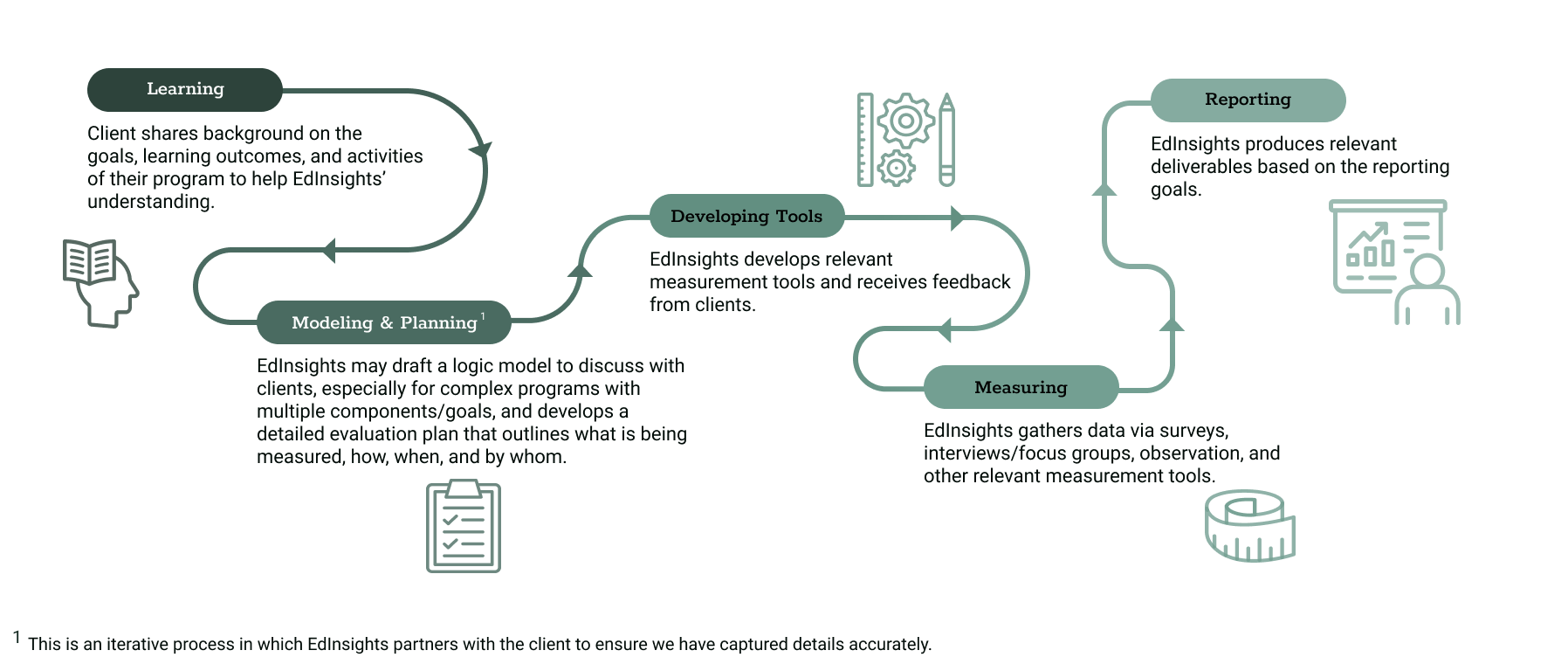We Conduct Evaluations

At the heart of our evaluation work is the desire to understand the impacts that public investments and large-scale education reforms have on students, educators, and institutions. We assess in real-time how our K-12 and higher education structures are working or not working, and for whom (through developmental evaluation) and we seek to understand the overall impacts of projects or initiatives (through summative evaluation).
Our evaluations draw from qualitative and quantitative data, and they range from assessments of student success programs at public institutions to system-wide higher education reforms. In all cases, we partner with the public education systems and institutions to interpret findings and suggest solutions for improving policy and academic practice.
Our projects focus on issues such as:
INSTITUTIONAL EFFECTIVENESS: EdInsights is partnering with the California Community Colleges Chancellor’s Office in a developmental evaluation of the Institutional Effectiveness Partnership Initiative. The main purpose is to support the Chancellor’s Office in continuously improving its professional learning opportunities to meet the ongoing needs of college administrators, faculty, and staff.
COLLEGE STUDENT SUCCESS: EdInsights has worked to evaluate multiple student success programs. For instance, at the request of the California Community Colleges Chancellor’s Office and in collaboration with the Umoja Community Education Foundation, EdInsights evaluated the Umoja college programs, which supports the cultural and educational experiences of African American, Black, and other students. This evaluation compared the outcomes of Black Umoja students, non-Black Umoja students, and non-participating Black students and outlined student support and engagement practices that can be scaled to community colleges statewide. At its host campus, Sacramento State, EdInsights worked with colleagues to evaluate student success programs, such as the Full Circle Project (FCP), which supports Asian American and Pacific Islander students through learning communities. Our evaluations have helped FCP identify the impacts of its efforts on student retention, course taking, and graduation, and improve student services.
GUIDED PATHWAYS: In partnership with the Foundation for California Community Colleges and the California Community Colleges Chancellor’s Office, EdInsights conducted a developmental evaluation of the rollout, planning, implementation, and early impact of the Colleges’ Guided Pathways framework. As the hallmark reform effort of the California Community Colleges, Guided Pathways seeks to improve student success through the development of structured course-taking patterns and embedded supports.
Our approach is collaborative and iterative:

While most of our evaluation reports are confidential, we share public reports on the Umoja College Program evaluation and Full Circle Project evaluation, which both present findings with broad implications for public policy and education practice in California.
We also published a series of briefs examining community colleges’ efforts to redesign career education (CE) programs to better prepare students for shifting regional workforce needs:
- Part 1: Student Perspectives on Career Education – Published in September 2020, this brief highlights what students found most helpful in contributing to their success in CE programs.
- Part 2: Challenges in Implementing CE Reforms – Published in October 2020, this brief focuses on barriers that faculty, staff, and administrators faced while redesigning CE programs to better meet students’ needs.
- Part 3: Policy Solutions for Stronger Workforce Development – Published in November 2020, this brief outlines policy recommendations to strengthen workforce development, highlighting progress and opportunities for further improvements.
These reports provide valuable insights for colleges, policymakers, and workforce development leaders. They are available to read and share.
